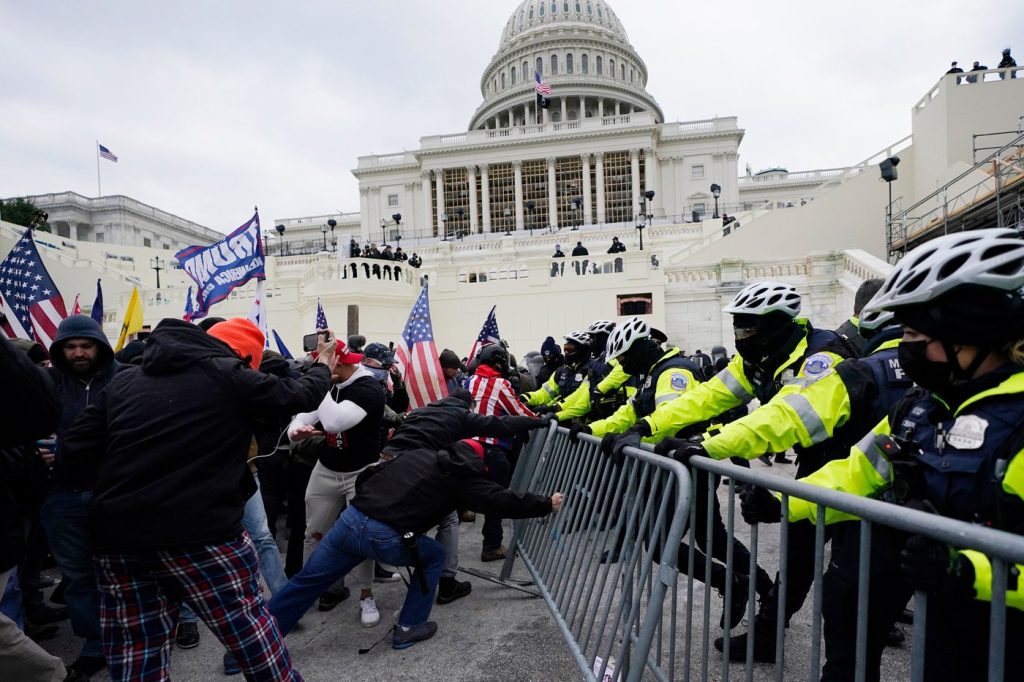On a recent occasion, former President Donald Trump granted a second pardon to a January 6 defendant, Daniel Edwin Wilson, who had been incarcerated despite a broader clemency initiative for U.S. Capitol rioters. Wilson remained in prison due to a separate conviction involving illegal possession of firearms, having been arrested with six guns and approximately 4,800 rounds of ammunition at his residence.
The pardon exemplifies Trump’s readiness to extend clemency to those who supported him during the bid to contest his electoral loss to President Joe Biden in 2020. Wilson was imprisoned following a conviction involving conspiring to impede or injure police officers during the January 6 riot, in addition to his firearm-related charge. His legal troubles arose in the wake of a comprehensive investigation that sought accountability for the violent events at the Capitol.
Judicial discourse has unfolded over whether Trump’s Jan. 6 pardons encompass additional crimes discovered amidst the subsequent federal investigations. Notably, the Trump-appointed U.S. District Judge Dabney Friedrich criticized the Justice Department for claiming that the pardons for January 6 rioters applied to Wilson’s firearm offense. The charges had complicated the broader legal narrative surrounding the riot, affecting how the pardons were understood in legal terms.
Wilson, who was set to remain imprisoned until 2028, was released following the pardon, and his attorney, George Pallas, expressed gratitude for the decision. According to Pallas, the pardon rectified perceived injustices in Wilson’s case, allowing him to reunite with family and start rebuilding his life. A White House official later clarified that the search leading to Wilson’s firearm charges was a direct consequence of his involvement in the January 6 events, suggesting that the grounds for the legal actions were inherently flawed.
In 2024, Wilson had been sentenced to five years in prison after pleading guilty to both conspiring against law enforcement officers and illegally possessing firearms. Prosecutors accused him of planning for the riot over several weeks, intending to prevent the peaceful transfer of power. They highlighted his communications with members of extremist groups such as the Oath Keepers and the Three Percenters, asserting that Wilson expressed intentions for a broader civil conflict in the United States.
During his sentencing, Wilson conveyed remorse for his actions on January 6, claiming he acted with "good intentions." The Justice Department's stance on the matter shifted over time; initially contesting that Trump's pardons did not include Wilson's separate firearms offense, the department later asserted a revised interpretation aligning with the intended breadth of the Presidential Pardon as it pertained to Wilson's case.
The evolving legal arguments prompted criticism from Judge Friedrich, who deemed it "extraordinary" that federal prosecutors sought to extend the reach of the pardons to illegal contraband discovered during the search related to the January 6 inquiries. The complexities surrounding Wilson's pardon have stirred dialogue regarding the extent and implications of presidential clemency in cases intertwined with significant civil unrest.
Reportedly, Wilson’s pardon reflects broader political themes and tensions in the aftermath of the Capitol riots, as well as the ongoing legal and societal ramifications stemming from that fateful day.










